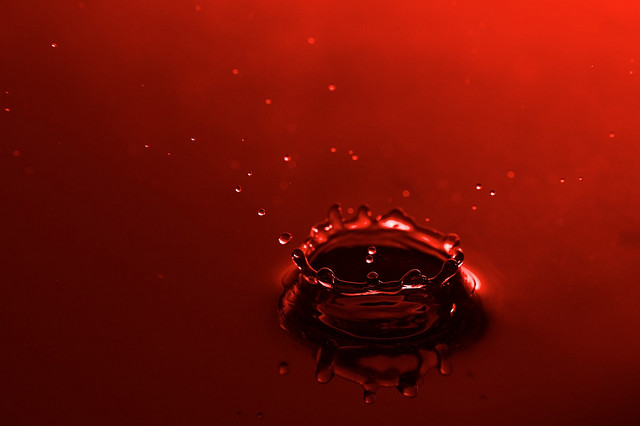FWP:
SETS == EK; GROTESQUERIE
I've never heard this one recited once in my whole life, and it's not hard to guess why. It's Exhibit A for my 'grotesquerie' category. It's just gross.
Undeniably, it follows the general logic of the ghazal in its extravagant but well-grounded wordplay. It makes clever use of the familiar pleasure/pain oscillation. Technically, there's nothing wrong with it. There's a fine use of bhī (to imply that the blood's state of mind simply mirrored the lover's own), and an interesting use of hayūlā , an exotic word borrowed from the Greek. Conceptually speaking, it's not so far from {10,4}, in which every wound is the 'seed of a fireworks-tree'.
But it nevertheless is repugnant. Although I can't prove it, since such judgments are subjective, I bet you'll agree. It has that over-the-top, more-than-we-really-wanted-to-know quality. A running sore (ulcer, fistula) is just not going to be poetically enjoyable in the ghazal context. It's too graphic for its own good. It carries more baggage of physical disgustingness than it can manage to lift.
However, let me also note that, as with the other verses
in my 'grotesquerie' category, the commentators don't seem especially bothered
about it, so it's perhaps a culturally-specific attitude that I'm expressing.
But then let me also note that the commentators' silence may not be so significant,
for they're rarely bothered about much of anything, once they can provide each verse with an acceptable
prose paraphrase.

Nazm:
That is, every drop of blood assumes the form of a running sore. Just as from an essence when one form vanishes the next one replaces it, so every drop of blood in turn assumes the form of a drop, and losing the aspect of blood will take on the aspect of a running sore. And wherever in the body there is any trace of blood, there a running sore will develop. (87)
== Nazm page 87